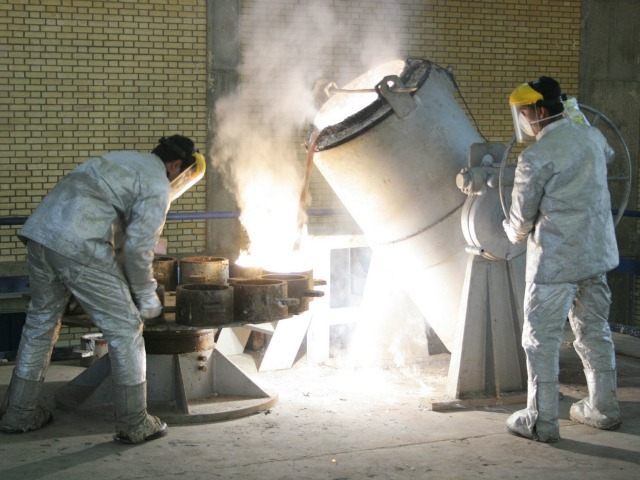President Obama’s nuclear deal with Iran took another hit on Tuesday, as word arrived via Reuters that the Iranians have stopped dismantling centrifuges in two of their uranium enrichment plants.
The stoppage comes “days after conservative lawmakers complained to President Hassan Rouhani that the process was too rushed.” The complaint from these 20 “hardliners” included a declaration that deactivating the centrifuges ran counter to directives from Supreme Leader Ayatollah Ali Khameinei, who has some more concessions he wants the Western world to make, including giving Iran a free pass on its previous illegal nuclear activities.
The head of the Iranian parliament’s commission on the nuclear deal told state-run media this letter from the lawmakers was the reason work was halted, at least at one of the sites.
It was only last week that Iran announced it was shutting down inactive centrifuges at the Natanz and Fordow plants, in accordance with the nuclear deal. The head of Iran’s nuclear energy program described this as “preliminary work,” and said the full dismantling process would “take some time.”
The Iranians know they can use this “hardliners vs. moderates” theater to extract more concessions from the Western world, particularly President Obama, who has already demonstrated a very high tolerance for Iranian mischief to keep the deal alive. Expect these “hardliners” to voice more concerns in the future, and for President Rouhani to wage more public battles with them. He has recently been quoted accusing his adversaries of “misusing” Supreme Leader Khamenei’s remarks, and of cracking down on journalistic dissent, polishing his credentials as the “moderate” leader the West can do business with.
Even though it is only a piece of geopolitical performance art, it is interesting to see that Iranian lawmakers supposedly have so much more influence over the nuclear deal than the U.S. Congress does.

COMMENTS
Please let us know if you're having issues with commenting.